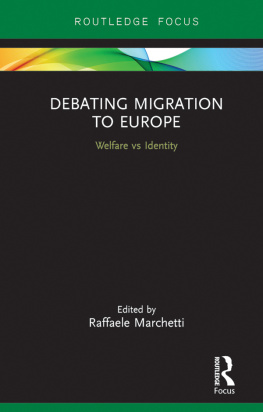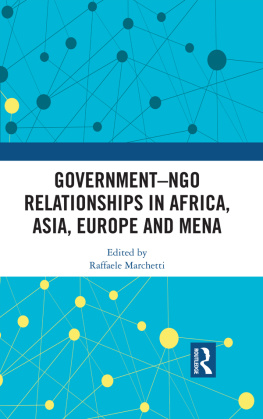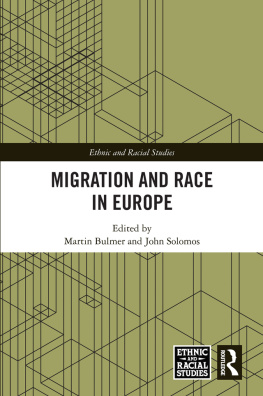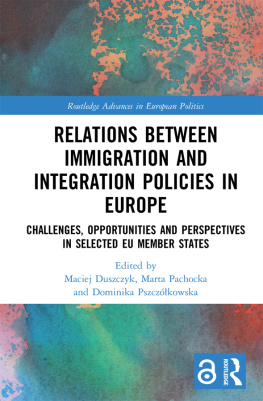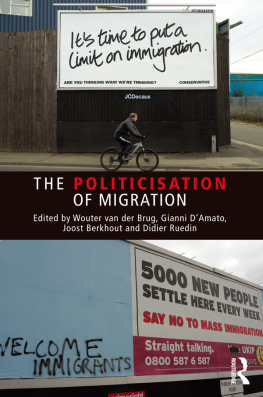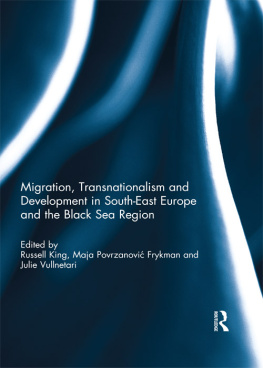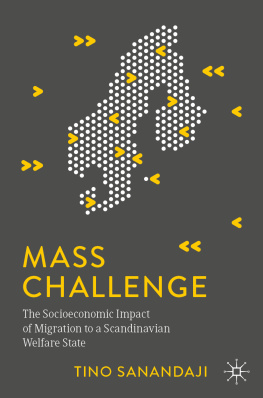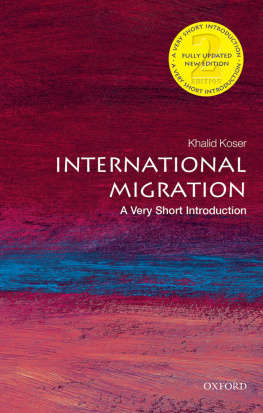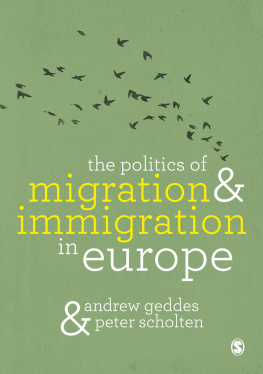Debating Migration to Europe
This concise, pointed contribution to the ongoing debate in Europe on the controversial phenomena of migration will appeal to the general reader, represent a significant contribution to the scholarly debate, and be an essential teaching and discussion tool.
A brief introduction from the editor, setting the contours of the political debate on migration today in Europe, prepares the reader for the books debate. This is followed by two very powerful and contrasting statements for and against migration to Europe, and a response from each contributor to the other.
The pro-immigration chapter is written by Philippe Fargues, one of our most eminent migration scholars, whilst the anti-immigration chapter is written by Anatol Lieven, a renowned expert on nationalism. The authors engage directly with the others position, deepening the debate, searching for common ground, and suggesting solutions.
This text will be of key interest to readers, scholars, and students of international migration, migration and development, European politics, political theory, and more broadly to public policy and international relations.
Raffaele Marchetti is Senior Assistant Professor in International Relations at the Department of Political Science and the School of Government of LUISS, Italy.
World Politics and Dialogues of Civilizations Series
Series Editor: Raffaele Marchetti, LUISS Guido Carli University, Italy
This new series aims to explore alternative models of the social, political and economic developments at regional and world levels in order to advance theoretical understanding, promote political debate, and provide policy-oriented advice. It focuses on six broad macro-areas: policies, institutions, and shared prosperity; infrastructure for global inclusive development; the economy beyond the failure of conventional models; East and West, North and South; civilisations against the threat of social barbarism; life space for humanity.
The series is linked to the research carried out by the Dialogue of Civilization-DoC Research Institute (Berlin), but is open to external contribution.
For more information on this series, please visit: www.routledge.com/World-Politics-and-Dialogues-of-Civilizations/book-series/DOC
1 Debating Migration to Europe
Welfare vs Identity
Edited by Raffaele Marchetti
First published 2018
by Routledge
2 Park Square, Milton Park, Abingdon, Oxon OX14 4RN
and by Routledge
711 Third Avenue, New York, NY 10017
Routledge is an imprint of the Taylor & Francis Group, an informa business
2018 selection and editorial matter, Raffaele Marchetti; individual chapters, the contributors
The right of Raffaele Marchetti to be identified as the author of the editorial material, and of the authors for their individual chapters, has been asserted in accordance with sections 77 and 78 of the Copyright, Designs and Patents Act 1988.
All rights reserved. No part of this book may be reprinted or reproduced or utilised in any form or by any electronic, mechanical, or other means, now known or hereafter invented, including photocopying and recording, or in any information storage or retrieval system, without permission in writing from the publishers.
Trademark notice: Product or corporate names may be trademarks or registered trademarks, and are used only for identification and explanation without intent to infringe.
British Library Cataloguing-in-Publication Data
A catalogue record for this book is available from the British Library
Library of Congress Cataloging-in-Publication Data
A catalog record for this title has been requested
ISBN: 978-1-138-56127-4 (hbk)
ISBN: 978-1-138-56130-4 (pbk)
ISBN: 978-0-203-71090-6 (ebk)
Typeset in Times New Roman
by Apex CoVantage, LLC
Contents
RAFFAELE MARCHETTI
PHILIPPE FARGUES
ANATOL LIEVEN
PHILIPPE FARGUES
ANATOL LIEVEN
Raffaele Marchetti is Senior Assistant Professor in International Relations at the Department of Political Science and the School of Government of LUISS. His research interests concern global politics and governance, transnational civil society, global migratory policies, and democracy. He acts also as external expert for the European Commission and other public/private institutions on issues of global governance, public policies, civil society, and security. He is the editor of the Routledge World Politics and Dialogue of Civilizations series.
Philippe Fargues is Professor at the European University Institute, where he founded the Migration Policy Centre. He is a sociologist and demographer. He has been director of the Center for Migration and Refugee Studies at the American University in Cairo, a senior researcher at the French National Institute for Demographic Studies in Paris, a visiting professor at Harvard, and director of the Centre for Economic Legal and Social Studies in Cairo. He has lectured in a number of universities in Europe, America, Africa, and the Middle East.
Anatol Lieven is a professor at Georgetown University in Qatar and a senior fellow of the New America Foundation in Washington, DC. He has been a British journalist in South Asia and the former Soviet Union. He is the author of America Right or Wrong: An Anatomy of American Nationalism and Pakistan: A Hard Country , among other books.
This book has been edited and financed through the assistance of the Dialogue of Civilizations Research Institute (DOC), Berlin. Transformed from the World Public Forum into a think tank, DOC explores and develops a portrayal of humanitys future, supportive of inclusive social and political developments and transformations in order to bring peace and stability, with the aim of making the world a more just, sustainable, and peaceful place for all people, nations, and civilizations.
The chapters in this volume were initially presented in a shorter format at the Rhodes Forum.
Thanks are due to the Rhodes Forum, and to the Dialogue of Civilizations Research Institute, for their support for this project.
Thanks also to Jonathan Grayson and Heather Brown for their editorial assistance.
1
The debate on migration in Europe and beyond
Raffaele Marchetti
Political boundaries are increasingly under pressure. As a consequence of the global transformations that are changing the international system, the criteria for determining inclusion in or exclusion from new political constituencies are under revision. At the national level, external migratory pressure coupled with domestic political dynamics is generating an intense debate on the legitimacy of keeping migrants out of national political life. Migration, alongside related policies regarding the admission of aliens into political communities, is increasingly recognised as a key issue of both political agendas and academic debates. As a political issue, migration is at the centre of a controversy where proponents of more open policies argue against tight border controls on multiple grounds. Economic theses are frequently mixed with cultural, political, legal, or security arguments. Pragmatic approaches are often entangled with ideological stances, idealistic attitudes, or racist positions. All of this contributes to creating a burning situation that not only heats up political debates, but sometimes also descends to the streets. As a theoretical issue, migration is equally controversial, for it intersects with a core node of political theory, namely the notion of citizenship. According to liberalism, individuals are entitled to a set of rights including the right to mobility, and yet this right is constrained by an equally recognised right to collective self-determination and national autonomy. This tension is more and more problematic in a world in which individual human rights are on the rise and state sovereignty is in decline in many respects with the precise exception of the issue of immigration.

